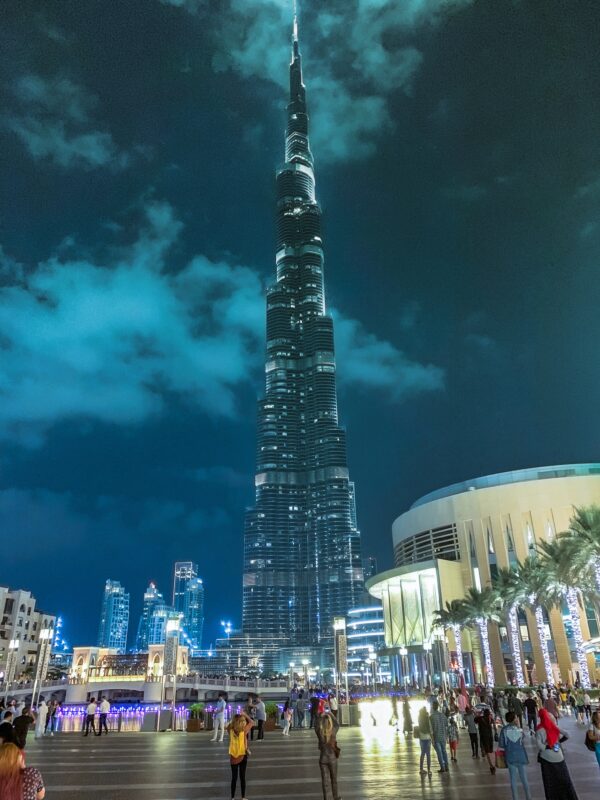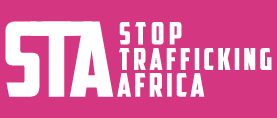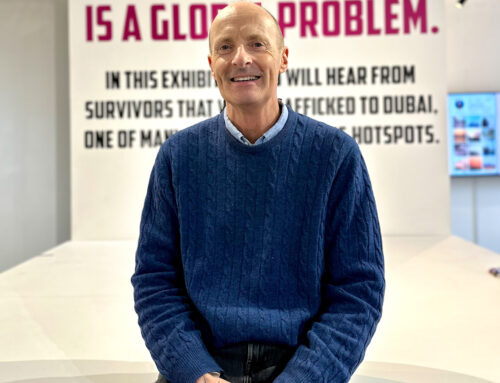Corporate Social Responsibility and hotels in the UAE
Big international hotel brands must take seriously their role in stamping out human trafficking says our funder Angus Thomas.
In Dubai, the glittering heart of the United Arab Emirates (UAE), women who have been trafficked from around the world are manipulated and forced into sex work. Many of these women must seek clients in the city’s lavish hotels where staff and management turn a blind eye. The anonymity provided by five-star hotels, often operated by some of the biggest names in global hospitality, coupled with a lack of accountability and apathy within the sector, has helped to ensure Dubai remains a global hub for human trafficking.

Where the Emirati authorities have so far failed in clamping down on human traffickers, international hotel brands have a responsibility to ensure no victim is exploited on their premises. However, as many international visitors to Dubai’s hotels will be able to attest, sex workers (some there by choice, many not) are a regular sight.
It is extremely difficult to understand the full scale of the problem in Dubai as the authorities do not release any data on human trafficking. The Global Slavery Index estimates there are around 132,000 people currently living in modern slavery in the UAE – a significant figure for a country with a population of only 9.4 million people. The proportion of trafficking victims forced into sex work or sexually exploited in residences and other places of work is also unknown, but many estimates put the number in the tens of thousands.
From my own experience helping to repatriate women from Nigeria that have been trafficked to Dubai, it is clear there are some hotels that do not just turn a blind eye but actually facilitate this illicit sex trade and, in doing so, profit from the punters they attract. A quick internet search reveals forums where tourists discuss the best hotels, streets and other venues to procure sex – the practice is hardly under the radar. At the end of November Dubai will host the UN Climate Change Conference (COP28). I have to wonder how many of the delegates from around the world will encounter, or receive services, from a victim of sex trafficking, the overwhelming majority of whom will be female.
Several factors have contributed to apathy on trafficking from Dubai’s hotels. Hotels often sub-let nightlife venues within their premises to third-party operators, creating a veil of ignorance that protects them from acts taking place under their roofs. Complex hotel ownership structures, including multiple stakeholders and unclear ownership boundaries, make it difficult to pin point who is in fact accountable or responsible for enabling these activities. There is also an expectation among some businessmen, conference delegates and tourists that hotel bars should host sex workers to ‘satisfy’ demand.
The global business community is not exclusively male. It should be totally unacceptable to international hotel brands to have part of its premises rendered “no go” areas to their female and family guests. Hotel dining is challenging enough for a solo female traveller, but with the tacit acceptance of prostitutes, incluing victims of sex trafficking, in their bars and nighclubs these areas are now off limits to the vast majority of female guests and one would speculate a significant proportion of the male guests too.
While Dubai stands out as a global hub for human trafficking, it’s important to recognise that it is a pervasive global issue that requires a unified international response. For the hotel industry, this must mean an independent industry body that can design, monitor and enforce new regulation and best practice. Such new standards will ensure hotels do not become accomplices to the traffickers and can play a role in identifying and supporting victims of trafficking and enslavement.
These standards should be developed in collaboration with international organisations, such as the United Nations Human Rights Council, and non-governmental organisations specialising in human trafficking prevention. To tackle the issue effectively, these guidelines should include employee training, guest awareness programmes, and vetting of third-party operators that sub-let hotel venues.
By willingly embracing and enforcing these standards, hotels not only demonstrate their commitment to assisting in the identification and support of victims, but also their determination to set a precedent within the industry and uphold human rights.
Numerous requests have been made by myself and other organisations to the Emirati authorities to discuss the challenges faced by women trafficked to the UAE and to jointly set out a roadmap to help tackle the issue. To date, we have had no response. Victims share our lack of faith in the authorities – with many not wanting to ask for help for fear of punishment or deportation for sex work, not having the correct documentation, or some other transgression. This paradigm perpetuates a cycle of impunity and prevents any meaningful progress.
Where the UAE authorities continue to fall short, hotels are uniquely placed to identify and help victims of human trafficking in Dubai and connect victims with NGOs and other support structures. Hotels have a moral duty to stop paying lip service to their own corporate values and deliver for the victims of trafficking forced to work in their bars and clubs.
This article was written by our founder and first published on Hospitalitynet






